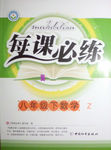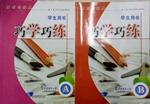题目内容
It rained heavily in the south,________serious floods in several provinces.
A. caused B. having caused
C. causing D. to cause
 每课必练系列答案
每课必练系列答案 巧学巧练系列答案
巧学巧练系列答案The ability to deal with anxiety is an important part of sports training.People who are able to overcome their anxiety perform much better than some of the strongest competitors of the game.Unfortunately,at times sportspersons fail because they feel nervous when they are on the playing field,which makes them lose confidence in themselves.As a matter of fact,performance anxiety is quite common among stage artists and athletes,who are required to present themselves and their skills to a large crowd.
Various psychologists have found that expert athletes may behave like amateurs under great pressure.So what causes performance anxiety?First of all,during training and preparing for any competition,an athlete focuses on improving his or her skills in a familiar environment.All the efforts taken and practice done are,thus,stored in the procedural memory.However,in a real competitive situation,the conscious awareness of new grounds corrupts the memory of the practiced game,thus causing anxiety.It is also found that with more cheering crowds,the pressure for the athlete to achieve the best builds up rapidly.
Secondly,our body releases certain hormones(荷尔蒙) to welcome the upcoming exciting situation,which causes quickening of the heartbeat and sweaty hands.These signs are often misinterpreted(曲解) by an athlete as fear and lack of ability to perform.The negative thoughts often result in a terrible panic attack.
Thirdly,while training,some athletes set unrealistic targets for themselves.Failure to achieve those targets is regarded as lack of skills and puts the athletes in self?denial(自我否定) of their own improvement.Even if they are fully prepared for an event,they tend to think poorly of their capabilities.Such reaction can turn any professional player into a green hand,thus ruining their performance.
Fortunately,something can be done to solve the problem.One of the best ways to overcome such a situation is distraction(分心).As soon as you have the awareness of anxiety,pay your attention to something else—maybe singing or asking a fellow sportsperson about something that is not related to the game.Besides,you can take some small but effective measures.For instance,cut down on caffeine and sugar and have a carbohydrate?rich meal before the game to preserve energy.Anyway,performance anxiety is not a disease that athletes can get rid of once and for all.They should handle it properly to improve their performance so as to achieve sporting glory.
Performance Anxiety in Sports | |
Concept of performance anxiety | ·Performance anxiety refers to the 1. of nervousness,which leads to athletes doubting their abilities. ·Its common 2. are stage artists and sportspersons. |
Causes of performance anxiety | ·Sportspersons can feel anxious when competing in a(n) 3. environment. ·The 4. of large cheering crowds makes a sportsperson feel more stressed. ·Sportspersons think too 5. about some normal body signs,such as fast heartbeat and sweaty palms. ·Sportspersons begin to doubt themselves when they 6. to achieve their targets.Thus,they tend to undervalue themselves even though they’ve made full 7. for the event. |
8. to performance anxiety | ·When you feel anxious,pay your attention to something 9. to the game. ·10. caffeine and sugar,and consume something rich in carbohydrate before the game. |

